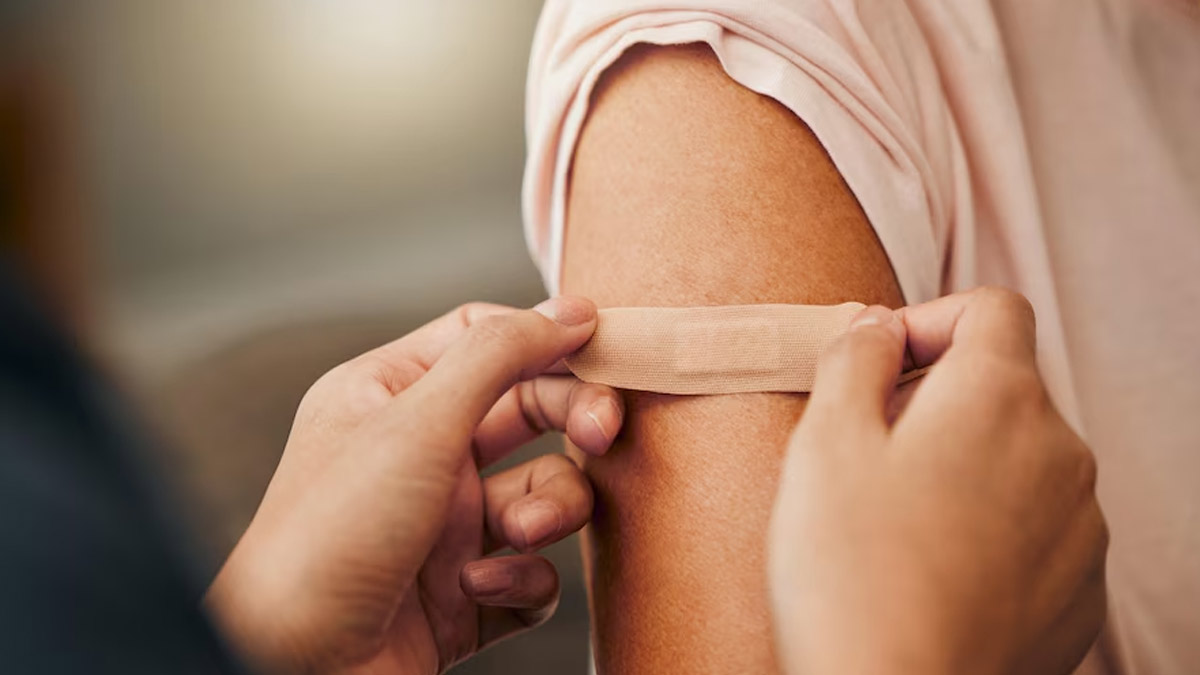
A recent study has unveiled concerning levels of toxic "forever chemicals" in several popular bandage brands, raising potential health concerns including cancer risks. This discovery, detailed in a Mamavation and Environmental Health News report, sheds light on the presence of PFAS (per- and polyfluoroalkyl substances) in widely used bandages, such as those offered by Band-Aid and Curad.
Table of Content:-
The study's significant findings indicate that many of these bandages contain detectable amounts of organic fluorine, a telltale sign of harmful PFAS compounds. Of the 40 bandages tested across 18 different brands, 26 showed organic fluorine levels surpassing 10 parts per million (ppm). The implications of these findings are alarming, especially considering that bandages are commonly applied to open wounds, potentially making it easier for these cancer-causing agents to be absorbed into the bloodstream.
Among the brands with higher levels of fluorine content (exceeding 100 parts per million) were Band-Aid, CVS Health, Equate, Rite Aid, Amazon’s Solimo, Target, and Curad. Here is how these band-aids can harm your health.
Health Impact of PFAS
PFAS have become a growing concern in recent years due to their pervasive presence in various everyday products and their potential health risks. These synthetic chemicals, often used in bandages for their water-resistant properties, have garnered the moniker "forever chemicals" as they do not degrade and can accumulate in your tissues over time.
They are resistant to heat, water, oil, and stains, and are also used in a wide range of products, including nonstick cookware, food packaging, waterproof clothing, and firefighting foams. According to the National Institute of Environmental Health Sciences, here’s how PFAS can have a hazardous impact on your health:
- Increased Cancer Risk: Studies have linked PFAS exposure to an increased risk of certain cancers, including kidney, testicular, and thyroid cancers.
- Liver Damage: PFAS exposure has been associated with liver damage, including changes in liver enzymes and fatty liver disease. Prolonged exposure to high levels of PFAS can lead to more severe liver complications.
- Immune System Impacts: Research suggests that PFAS can weaken the immune system, making individuals more susceptible to infections and illnesses.
- Reproductive and Developmental Issues: Pregnant women exposed to PFAS may experience complications such as low birth weight, preterm birth, and developmental delays in children. PFAS can also affect hormone levels, potentially leading to reproductive problems.
- Chronic Health Conditions: Long-term exposure to PFAS has been linked to chronic health conditions such as high cholesterol, hypertension, and immune disorders.
Also Read: Newspaper Used To Pack Street Food Is Slowly Poisoning All Indians: FSSAI Issues Warning

Minimising PFAS Exposure
PFAS are all around us, making it difficult for us to avoid it altogether. However, here are a few steps you can take to minimise your exposure to PFAS:
- Avoid Nonstick Cookware: Opt for ceramic, stainless steel, or cast iron cookware instead of nonstick pans that may contain PFAS coatings.
- Read Labels: Check product labels for PFAS-free alternatives, especially in items like food packaging, clothing, and cosmetics.
- Filter Your Water: Use a water filter certified to remove PFAS from drinking water, especially if you live in an area with known PFAS contamination.
- Limit Fast Food and Takeout: PFAS can leach into food from packaging materials, so reducing consumption of fast food and takeout can help lower exposure levels.
Also Read: Side Effects Of Mouthwash: Expert Shares It Can Cause Cancer

This latest study has emphasised a harsh truth that many such reports have tried to tell us for decades. Which is, the presence of harmful chemicals in factory-made products that we use. This revelation underscores the need for heightened scrutiny and potential reformulation in not just the bandage industry but also other consumer-driven industries that use PFAS and other hazardous chemicals. Meanwhile, you can do your part by understanding where PFAS are found and taking proactive steps to reduce exposure to protect yourself and your family from these harmful chemicals.
Also watch this video
How we keep this article up to date:
We work with experts and keep a close eye on the latest in health and wellness. Whenever there is a new research or helpful information, we update our articles with accurate and useful advice.
Current Version
